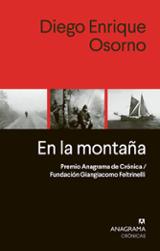Broken Altars: Secularist Violence in Modern History


Broken Altars: Secularist Violence in Modern History

Sobre el libro Broken Altars: Secularist Violence in Modern History de Thomas Albert Howard publicado por Yale University Press al 2025:
A popular truism derived from the Enlightenment holds that violence is somehow inherent to religion, to which political secularism offers a liberating solution. But this assumption ignores a glaring modern reality: that putatively progressive regimes committed to secularism have possessed just as much and often a vastly greater capacity for violence as those tied to a religious identity. In Broken Altars, Thomas Albert Howard presents a powerful account of the misery, deaths, and destruction visited on religious communities by secularist regimes in the twentieth century. Presenting three principal forms of modern secularism that have arisen since the Enlightenment—passive secularism, combative secularism, and eliminationist secularism—Howard argues that the latter two have been especially violence-prone. Westerners do not fully grasp this, however, because they often mistake the first form, passive secularism, for secularism as a whole. But a disconcertingly more complicated picture emerges with the adoption of a broader global vision. Admitting different species of secularism, greater historical perspective, and case studies drawn from the former Soviet Union, Turkey, Mexico, Spain, Czechoslovakia, Albania, Mongolia, and China, among other countries, Howard calls into question the conventional tale of modernity as the pacifying triumph of secularism over a benighted religious past.Altres llibres de Thomas Albert Howard
Altres persones que han llegit Broken Altars: Secularist Violence in Modern History de Thomas Albert Howard han escollit
El llibre Broken Altars: Secularist Violence in Modern History de Thomas Albert Howard pertany a la matèria
Veure altres ressenyes de Antropologia
Ressenya
Tonio Hölscher
El nadador de Paestum
Con su visión de historiador, Tonio Hölscher conecta diferentes puntos de la historia cultural de la antigua Grecia para presentar una visión en conjunto de la juventud y su papel en la sociedad, e...

Ressenya
Antonio Turiel
Sense energia
Antonio Turiel ens confronta amb un futur pròxim on la crisi energètica, la geològica, l’ecològica o l’espiral inflacionista són ja fenòmens científicament inevitables i davant dels quals haurem d...

Ressenya
Judith Herrin
Rávena. Capital del imperio y crisol de Europa
¿Qué podemos aprender de las grandes ciudades del pasado? Después de que tribus germánicas atravesaran los Alpes y conquistaran el norte de Italia, amenazando a Milán, la sede del poder imperial, H...

Ressenya
Leonardo Sciascia
Leonardo Sciascia, escritor y editor. La felicidad de hacer libros
Mordaz y tajante, poniendo en duda su calidad, así presentaba Leonardo Sciascia su propio libro, L’Affarie Moro: “Sobre este libro – todavía no publicado ni leído – Eugenio Scalfari escribió en 





































